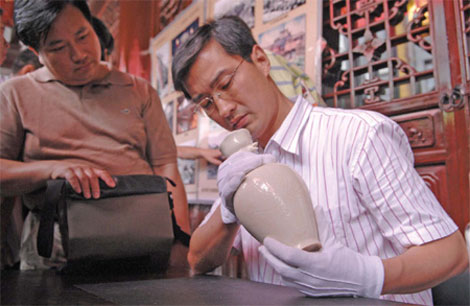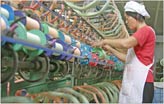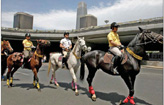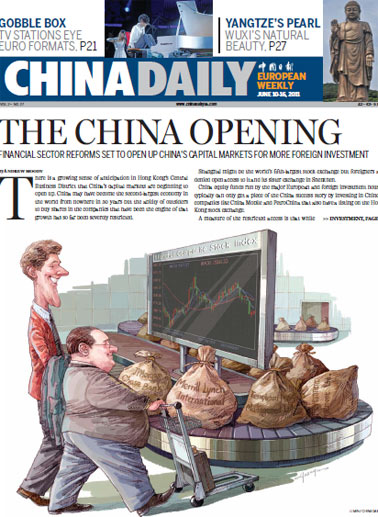Finding the true value
Updated: 2011-05-27 11:01
By Zhang Yuchen (China Daily European Weekly)
 |
|
An expert provides free antique appraisal services in Hefei, Anhui province. China's legitimate art and relics market overtook the UK to become the second-largest market worldwide. Ma Qibing / for China Daily |
Limited access to qualified appraisers makes investing in antiques a risky proposition
A local woman with a porcelain pot once approached Ding Yuanhai in Harbin. She told Ding, director of the Cultural Heritage Forensic Evaluation Institute of Heilongjiang Museum, that her antique had been appraised for 100,000 yuan (10,900 euros). And she had a document to prove it, provided and signed by an expert she had found through connections in Beijing. Ding and his colleagues looked over the item and broke the news: The pot was counterfeit. That meant the woman had lost the 20,000 yuan appraisal fee she had paid the "expert" in the capital.
"She fell onto the chair and sat there, fixed, when she heard the 'antique' was a fake," Ding says. "I felt so sorry. "
In the past two years, more than 1 million items have been submitted to Ding and his colleagues for review at the institute, the only organization in the province entitled to conduct forensic appraisals, which are used for court proceedings.
Although most of the items had been appraised or were thought to be genuine, Ding says: "We could guarantee only 61 items among them and handed out credentials to the owners."
China's legitimate art and relics market is thriving. Last year it overtook the United Kingdom's to become the second-largest market worldwide, according to an annual report by the European Fine Arts Foundation. Its value doubled from 2009, reaching 9.8 billion euros and a 23 percent global share, the foundation said.
The counterfeit market is booming, too. According to a recent report from Beijing Business Today, about 300,000 people work in China's fake antiques market, which generated more than 10 billion yuan in 2009 and 2010.
Common people still dream of making a fortune by buying and selling true relics, but there's little help available to guide and protect them.
E-paper

Pearl on the Yangtze
Wuxi is considered a town of natural beauty and its motto is "city of water and warmth".
Prose and consternation
Riding on a mystery train
Way of a warrior
Specials

Wealth of difference
Rich coastal areas offer contrasting ways of dealing with country's development

Seal of approval
The dying tradition of seal engraving has now become a UNIVERSITY major

Making perfect horse sense
Riding horses to work may be the clean, green answer to frustrated car owners in traffic-trapped cities
